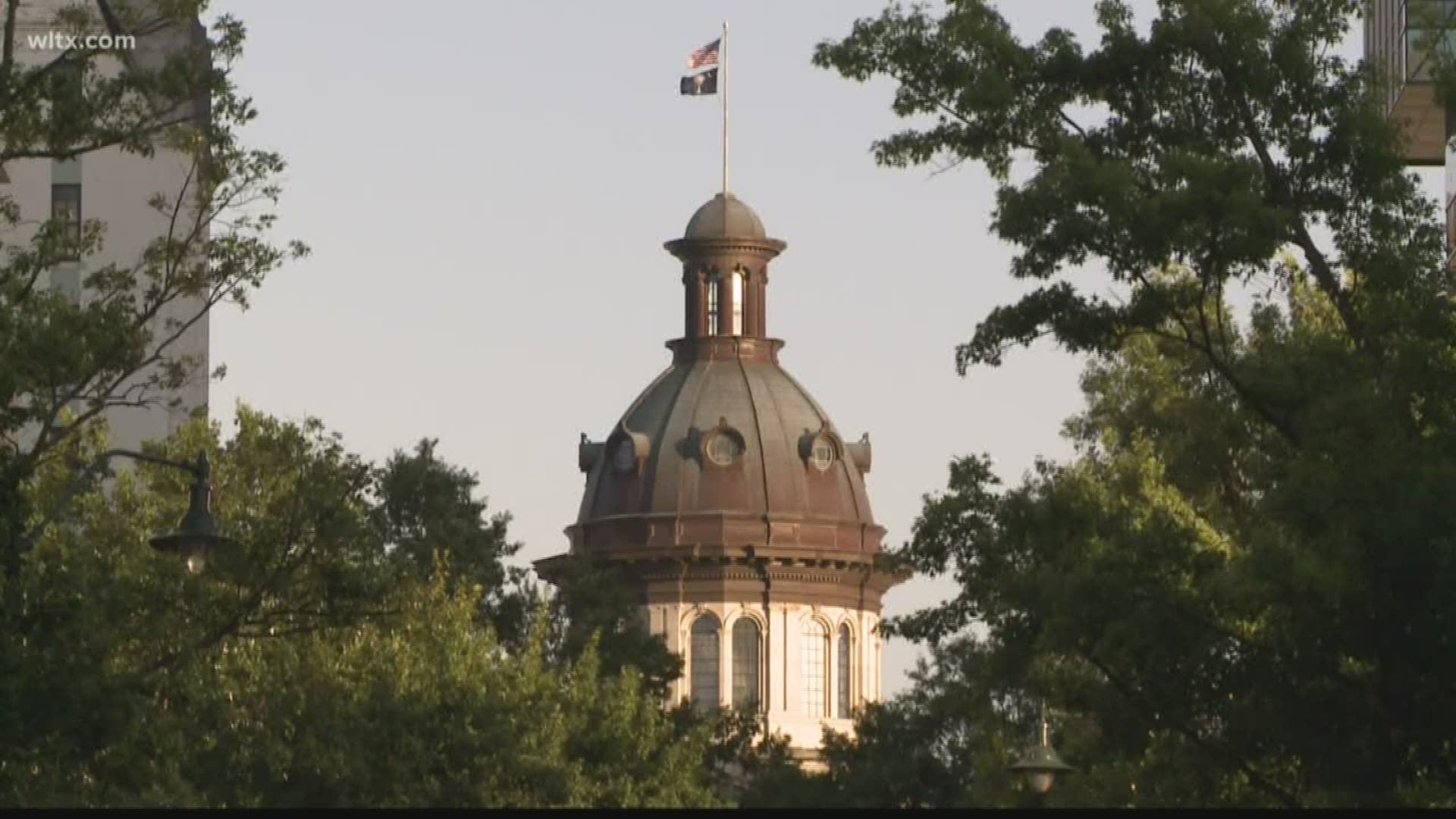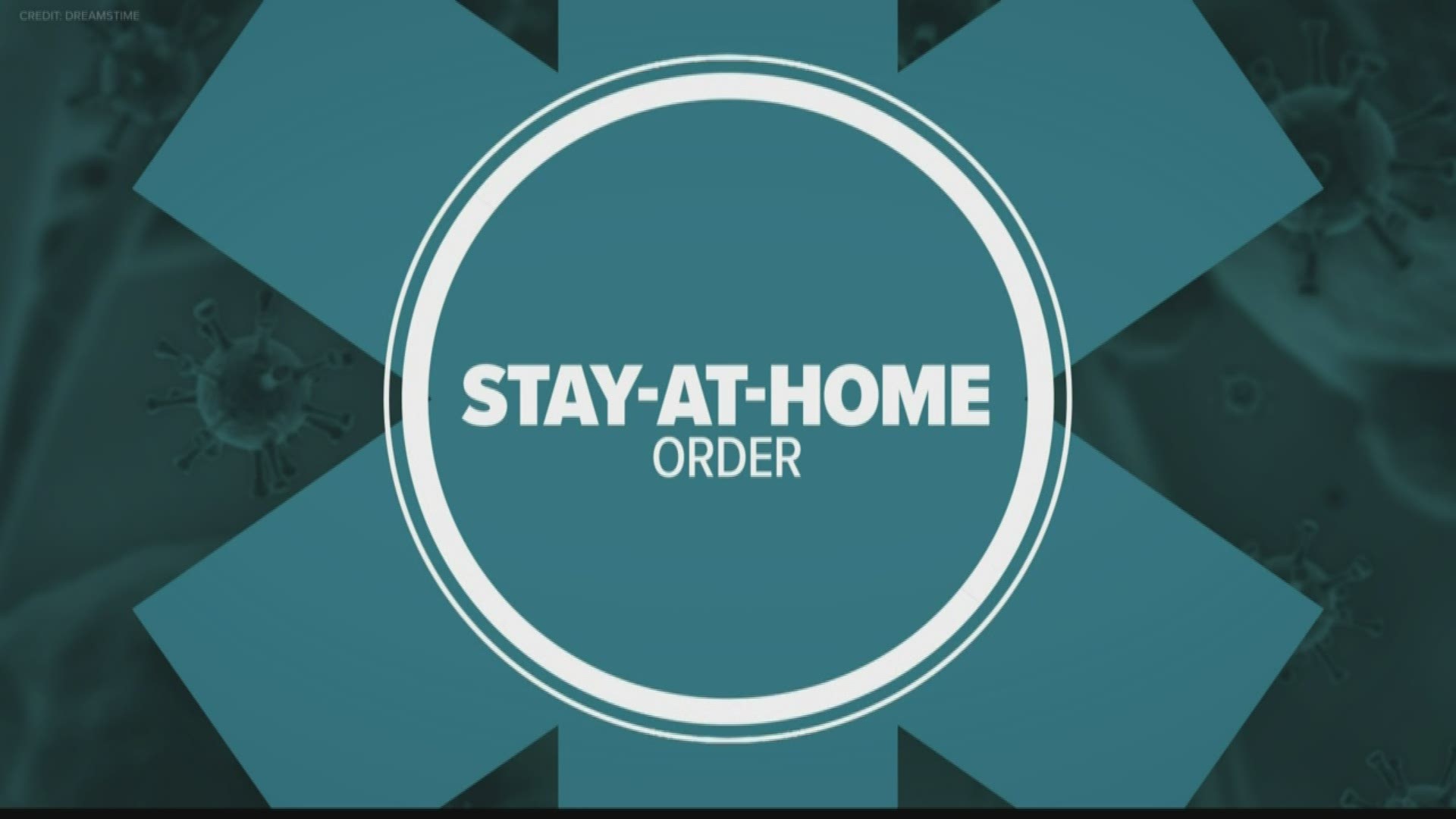COLUMBIA, S.C. — The City of Columbia has approved a stay-at-home/stay safe order for all residents in an effort to limit the spread of the coronavirus.
Council approved the measure Thursday afternoon on a remote meeting. The ordinance goes into effect this Sunday, March 29, at 12:01 a.m. It's set to expire in 14 days.
The measure restricts most movement through the city, except for people people going to work at an essential service, buying groceries or picking up food at a restaurant, or going to get services at an essential business. That would mean people are free to shop at grocery stores, big-box stores, and pharmacies.
The measure did not pass without some disagreement. Councilman Daniel Rickenmann said he didn't understand why it was necessary, feeling that it isn't very different from what's open now.
The Basics on the Stay at Home:
- Individuals shall stay in their homes and not travel, congregate in the streets, sidewalks, waterways, or public spaces, except for working at essential businesses
- Anyone who must go out for working or conducting business at at essential service must stay at least six feet away from each other, except those traveling together in a car to an essential service
- Essential businesses must take reasonable measures to keep their employees and the public six feet away from each other inside the building
- Vendors that provide essential services, including logistics and tech support, must make a reasonable effort to ensure social distancing. Restaurants and bars can continue to serve take out, delivery, and drive-thru
What are 'Essential Services?
- Heath care services, including research labs, hospitals, walk-in care facilities, veterinary and livestock services, elder care, medical wholesale and distribution, home health care workers or aides, doctor and emergency dental, nursing homes or residential health care facilities or congregate care facilities, medical supplies and equipment manufactures and providers.
- Essential infrastructure services, including power generation, fuel suppy and transmission, public water and wastewater, telecommunication and data centers, airports/airlines, transportation infrastructure such as bus, rail, or for-hire vehicles, garages, vehicle sales and services, hotels, and places of accommodation, the South Carolina Port Authority
- Essential manufacturing including food processing, manufacturing agents, including all foods and beverages chemicals, medical equipment/instruments, pharmaceuticals, sanitary products, telecommunications, microelectronics/semi-conductor, agriculture/farms, household paper products, vehicle and aircraft manufacturing
- Essential retail, including grocery stores, food and beverage stores, pet stores that sell food and medications, big box stores, wholesale clubs that have grocery and pharmacy, convenience stores, direct farm to consumer sales, gas stations, restaurant/bars (takeout/drive-thru/delivery only), hardware and building material stores and online retailers that deliver products and services to individuals homes and businesses.
- Garbage, trash, recycling, mail, shipping services, laundromats, dry cleaning, building cleaning and maintenance, child care services, warehouse distribution and fulfillment, funeral homes, crematoriums, cemeteries, storage for essential businesses, animal shelters, education institutions for distance learning, research, and essential functions.
- News media
- Financial institutions and professional services operations including banks, credit unions, check-cashing services, insurance, payroll, accounting, and services related to financial markets, and legal services. Travel agencies for the purpose of cancellations and refunding.
- Services for economically disadvantaged people, including homeless shelters, food banks, human services providers whose function includes the direct care of patients in state-licensed or funded voluntary programs, those operating community shelters and other critical human services agencies providing direct care or support.
- Commercial and residential construction, including electricians, plumbers, landscape services, pool maintenance, nurseries, construction firms and people needed for emergency repair and safety purposes
- Defense operations including defense and national security-related operations
- Law enforcement, fire prevention, building code enforcement, security, emergency management and response, building cleaners and janitors, general maintenance whether employed by the direct entity or a vendor, automotive repair, motorcycle and bicycle repair, disinfection, mail, post, shipping, logistics, delivery, and pick-up services.
- Real-estate brokers and real estate management
On Tuesday, Charleston became the first major jurisdiction in the state to issue a stay-at-home order and it went into effect Wednesday.
States, cities and counties around the state have been issuing similar orders.
Columbia had already implemented a citywide night curfew last week from 11 p.m. to 6 a.m. that restricted all travel in that time frame to essential only.
RELATED: Governor's order to dispers gatherings doesn't apply to families, workplaces, law-abiding businesses
So far, South Carolina Gov. Henry McMaster has not issued a statewide order to stay at home. On Monday, he said it wasn't being considered, but all options were on the table.
What is the Coronavirus?
Coronaviruses are a large family of viruses that cause respiratory infections ranging from the common cold to more serious diseases such as pneumonia. DHEC is working with CDC to identify all those who might have been in contact with these individuals. These people will be monitored for fever and respiratory symptoms.
People can help to prevent the spread of the virus in the following ways:
- wash your hands often with soap and water for at least 20 seconds, especially after using the bathroom, before eating, and after blowing your nose, coughing or sneezing. If soap and water are not readily available, use an alcohol-based hand sanitizer with at least 60% alcohol. And, always wash your hands with soap and water if they are visibly dirty.
- avoid touching your eyes, nose or mouth.
- stay home when you’re sick.
- cough or sneeze into your elbow or use a tissue and put it in the trash immediately.
- clean and disinfect frequently touched objects and surfaces.
- get the influenza vaccine.
For general questions about COVID-19 residents should visit the DHEC website at scdhec.gov/COVID19 or the CDC website here.
For residents concerned about their own personal health or are showing symptoms such as fever, cough or shortness of breath, please call your personal doctor or healthcare provider. DHEC has launched its Care Line. If residents have general questions about COVID-19, the DHEC Care Line is here to help. Call 1-855-472-3432. Staff are answering calls from 8 a.m. to 6 p.m. Call volume has been high. Callers are urged to be patient if they receive a busy signal and try their call at a later time.


